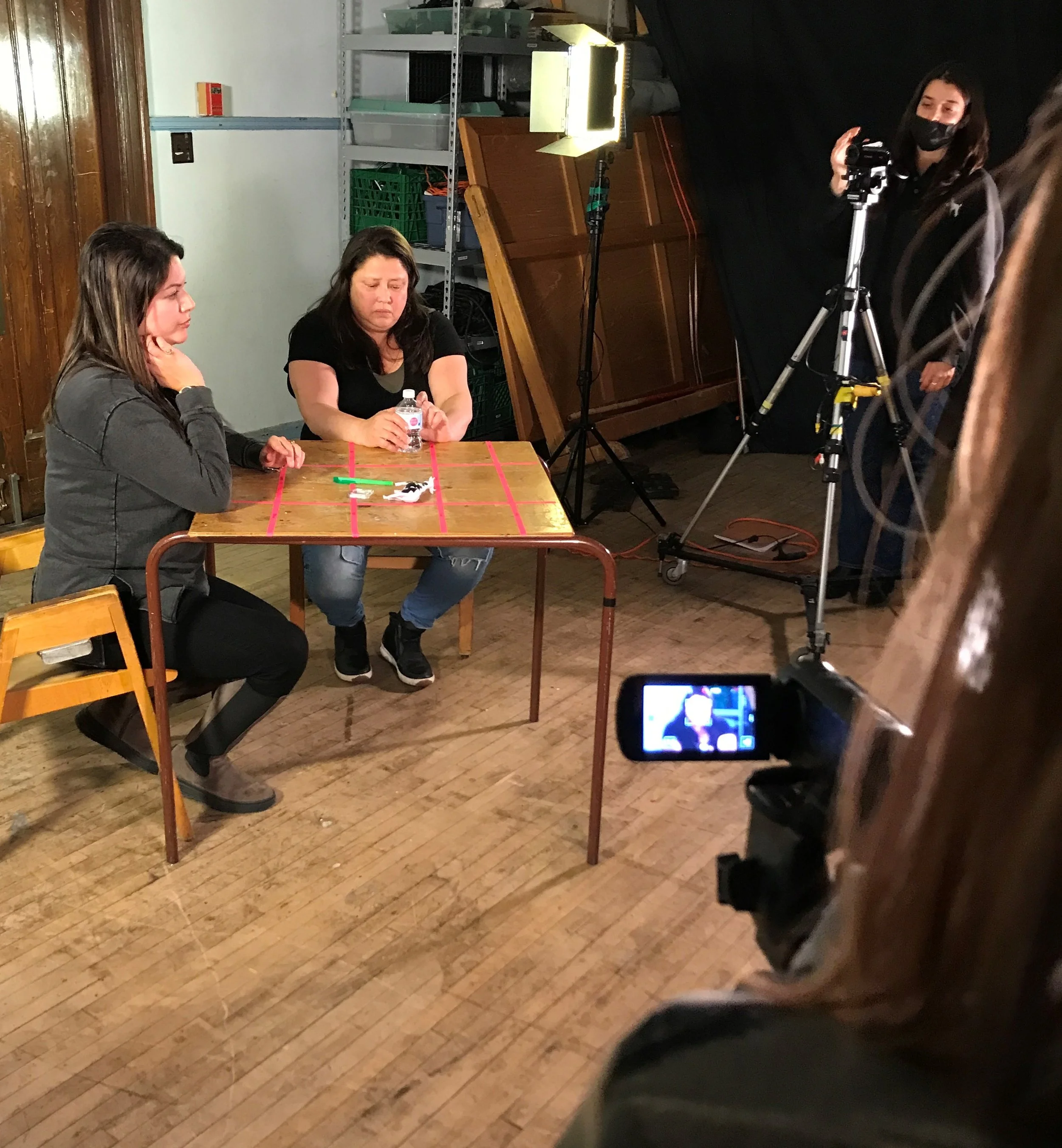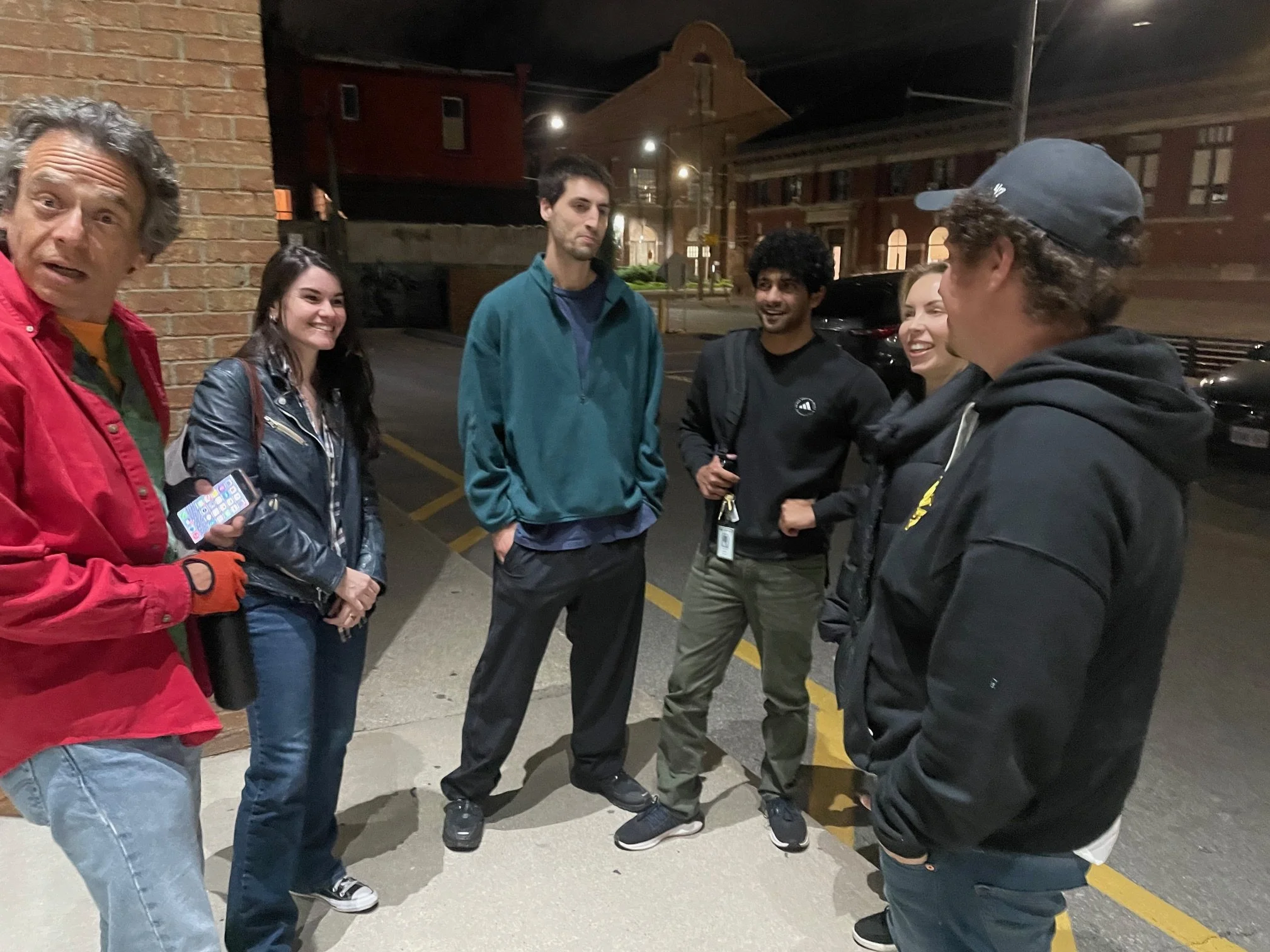Definitions.
An exact statement or description of the nature, scope, or meaning of something.
Our definition of what constitutes poetry.
Definitions was proposed by Camille Stopps. It hit her that there are key ideas in our work manifested in certain words and that to look at the actual definition of those key words was important -- especially in this day of disinformation.
All definitions come from the Oxford English Dictionary.
The expression of one’s meaning by using language that normally signifies the opposite, typically for humorous or emphatic effect.
“It involves saying one thing while meaning something else. Something that is opposite to the surface meaning. Could be humorous or deadly serious…speaker can enjoy it sometimes wryly at his own expense…it’s half-way between thought and feeling.”
John Barton, from his book Playing Shakespeare, Methuen.
“Brutus is an honourable man.”
Mark Antony from William Shakespeare’s Julius Caesar.
With reference to language: the fact or quality of having different possible meanings; capacity for being interpreted in more than one way.
“A double meaning in a single word or phrase. Irony always involves ambiguity.”
John Barton, from his book Playing Shakespeare, Methuen.
Coriolanus: Now good Aufidius,
Were you in my stead, would you have heard
A mother less? Or granted less, Aufidius?
Aufidius: I was moved withal.
Senses relating to a regular repeated pattern of sound or movement
The measured flow of words or phrases in verse, forming various patterns of sound as determined by the relation of long and short or stressed and unstressed syllables in a metrical foot or line.
“Black musicians don’t play better than White musicians, but they play different. White musicians tend to lag behind the beat. But I don’t know why.”
Miles Davis, The Today Show, 1982.
The use of the imagination to express ideas or feelings, particularly in painting, drawing or sculpture.
The Centre for the Arts logo, in allegorical fashion, presents a notion of art as the making and building of culture.
“Artists are the gatekeepers of truth. We are civilization’s radical voice.”
Paul Robeson.
The activity of proprioceptors; the perception of the position and movements of the body.
Is often described as a “sixth sense” or the “eyes of the body”. It’s an essential, often subconscious, ability that allows us to move without constantly needing to look at our limbs.
Cleveland Clinic.
The actor uses and develops proprioception while acting in front of a camera relating the actual space they are in with the space photographed in the frame.
That which is considered proper, correct, or consonant with justice, and related uses.
People have rights by virtue of being human.
“Human rights are rights inherent to all human beings, regardless of race, sex, nationality, ethnicity, language, religion, or any other status. Human rights include the right to life and liberty, freedom from slavery and torture, freedom of opinion and expression, the right to work and education, and many more. Everyone is entitled to these rights, without discrimination.”
Universal Declaration of Human Rights.
In the arts, a trope is simply a common convention in a particular medium.
How to dismember every Hollywood trope in one easy TikTok.
Carolina A. Miranda, columnist, Los Angeles Times.
As an actor you need to learn the tropes as part of film language.
The aerobic energy cost required to perform a submaximal task.
“All that is important is this one moment in movement. Make the moment important, vital, and worth living. Do not let it slip away unnoticed and unused.”
Martha Graham.
Maximum result with minimum effort.
That line or movement that closes a scene - like buttoning something up. Also called a tag.
"Here's looking at you, kid."
Humphrey Bogart, CASABLANCA, Warner Brothers (1942)
Puts the cherry on the cake.
Relative position or combination of circumstances at a certain moment.
“To be, or not to be, that is the question:”
Hamlet, Hamlet, Prince of Denmark by William Shakespeare.
It becomes yours easier if you call it and learn it as a situation rather than a scene.








